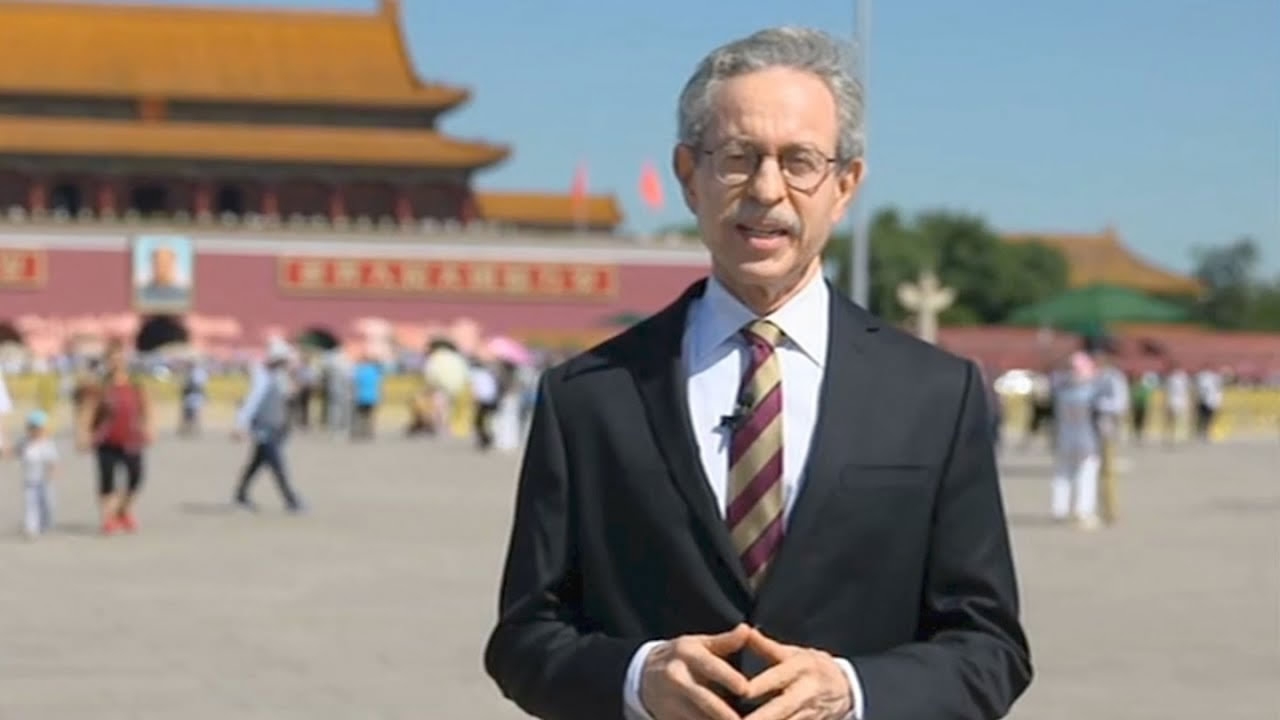
Politics
15:26, 09-Oct-2017
Closer to China: Xi’s role for the Party
CGTN

President Xi Jinping has strengthened the role of the Communist Party of China (CPC) in the governance of the country over the past five years.
The augmented role of the Party in the governance of commercial enterprises exemplifies President Xi’s determination to strengthen the Party’s leadership.
CGTN's Closer to China with R.L. Kuhn spoke to Party insiders to discover why Xi is committed to enhancing the CPC’s governing power.
Xi’s governing philosophy for the Party
Since becoming the general secretary of the CPC Central Committee in 2012, Xi has promoted a strengthened Party by cracking down on indiscipline and excess.
Han Qingxiang, a member of the administrative committee of the Party School of the CPC Central Committee, told Closer to China that former Party chief Hu Jintao had warned four types of risk ahead: "Lost vitality, insufficient capacity, alienation from the people, and rampant corruption."
"Since the 18th Party Congress, President Xi Jinping has promoted a comprehensive strengthening of the Party disciplines around these four issues," Han explained.
"Thanks to such efforts, the political eco-system within the Party, the political environment, and political life are constantly improving. We are fully confident about building the CPC into a powerful political party with firm confidence in itself.”
Role of the Party in foreign enterprises
Party branches can be found in government institutions, factories, and joint ventures between Chinese and foreign companies. But how does the increasing role of the Party in state-owned enterprises (SOEs) and private companies influence management?
Li Junru, former vice president of the Party school of the CPC Central Committee, explained that in SOEs and government-affiliated institutions the Party has the leading core, but in a private company the Party is the political core so decisions concerning development of the business are still made by the board of directors.
Zheng Xinli, former deputy director of the Policy Research Office of the CPC Central Committee, said having a CPC voice within a company can "provide a guarantee that the business operations are carried out in line with the Party’s policies and the law, instead of going against them."
Why is the ‘advanced nature’ of the Party important?
Gao Yongzhong, former vice minister of the Party History Research Office of the CPC Central Committee, explained that the "advanced nature" of the CPC means members are held to higher standards.
"The Party’s advanced nature means it is always at the forefront of the times. As an individual one must always be at the front, and going in the right direction. Ideology must also be advanced, actions must also be advanced. That means doing everything better than others.
"Generally speaking, advanced nature means standing at the front. That is what I would call advanced nature. We are now fighting corruption. The fundamental goal is checking corrupt Party members so as to maintain the advanced nature and purity of the Party and its members and to make it always stay at an advanced level. Only then can we win the people’s trust. Without the people’s trust, any party will fall. We are no exception."
The CPC and legitimacy
Zhu Lingjun, deputy director at the Party Building Department of the Party School of the CPC Central Committee, said that China’s understanding of "legitimacy" is different to that in the West.
"The West has achieved legitimacy through universal suffrage, while the Chinese have used indirect elections to achieve this legitimacy. Of course China is also a country with an electoral system, we have the People’s Congress system, and the deputies to the People’s Congress and Party Congress deputies are directly elected, at and below county level. Indirect elections are held for those bodies above county level. So our government is also formed by elections."
Xie Chuntao, member of administrative committee at the Party School of the CPC Central Committee, emphasized the importance of "participation."
"I think in the past three decades or more, China’s democratic process has moved very fast," he added.
What will the Party’s role look like in five to 10 years?
Han Qingxiang explained that the development of a market economy in China had led to more players in society, and that in turn had required a strengthened Party to provide effective governance.
"With a market economy, the society becomes more and more diversified with multiple active players. Before 1978, major players in the country included the political party of the CPC, social organizations, and the people. However, with the diversification that comes with a market economy, we have more than the Party, social organizations and the people.
"In addition, we have enterprises and citizens who are all part of the diversified pool of players. As a result, there naturally arises the problem of how to govern such a diverse society. The Party documents offer answers: that is, we have to let both the general public and the Party involved in the governance of social affairs."

SITEMAP
Copyright © 2018 CGTN. Beijing ICP prepared NO.16065310-3
Copyright © 2018 CGTN. Beijing ICP prepared NO.16065310-3